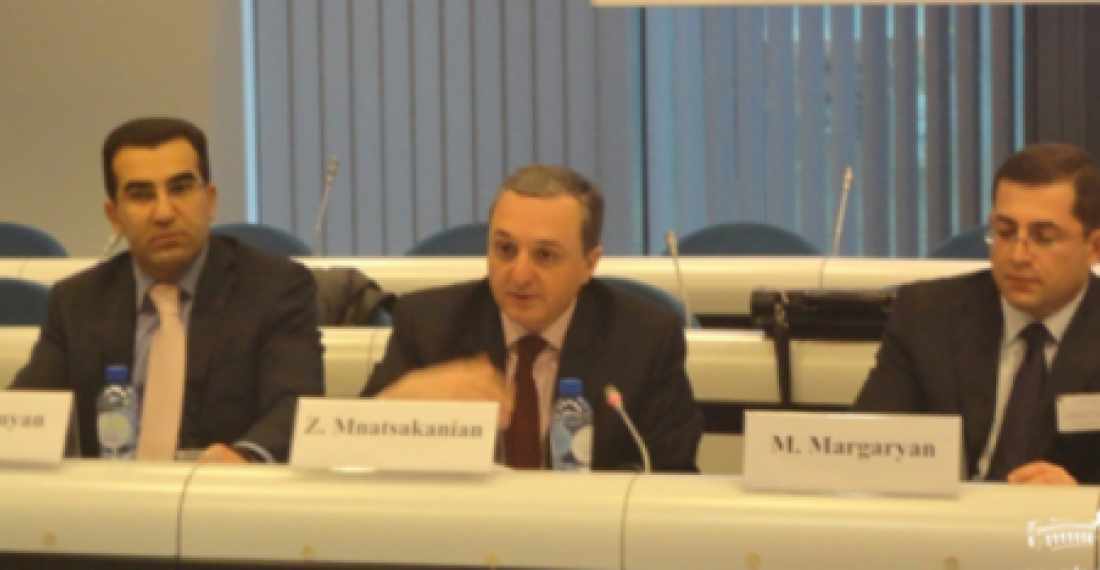Armenia and the European Union have made progress in the negotiations of an Association Agreement that would considerably upgrade the relations between the South Cucasus country and the European Bloc. The eighth round of negotiations on the Association Agreement was held in Brussels on January 25-26. The Armenian delegation was headed by Deputy Foreign Minister, Chief Negotiator Zohrab Mnatsakanyan and the European Union Delegation was headed by Director for Eastern Europe of the European External Action Service, Gunnar Wiegand.
According to a statement of the Armenian Foreign Ministry posted on its website, "the negotiations resulted in substantial progress in terms of the main goals and principles of the future Agreement as well as on political dialogue, foreign and security policy, and cooperation in the sphere of justice". 22 chapters of the future Agreement concerning cooperation in the economic and financial spheres are already discussed and temporarily closed. The sides expressed the confidence that during the next plenary session, it will be possible to start negotiations on the chapters of the agreement concerning the establishment of a comprehensive free trade area.
During the negotiations, the sides also reached agreement to start negotiations on the visa regime facilitation for Armenian citizens in late February. The next round of negotiations is scheduled to be held in Yerevan in late March.
Armenia has recently been giving particular attention to its relations with the European Union. Prime Minister Tigran Sargsyan visited Brussels on three ocassions last year for negotiations with EU officials. The EU is seeking to sign Association Agreements with all the three South Caucasus countries, and sees this as the next step in the development of its relations with the region
source: commonspace.eu with the Press Service of the Armenian Foreign Ministry
Photo: The Armenian Delegation at the 8th round of the negotiations of an Association Agreement with the EU in Brussels on 25-26 January 2012 (Picture courtesy of the Armenian MFA/Mediamax)







